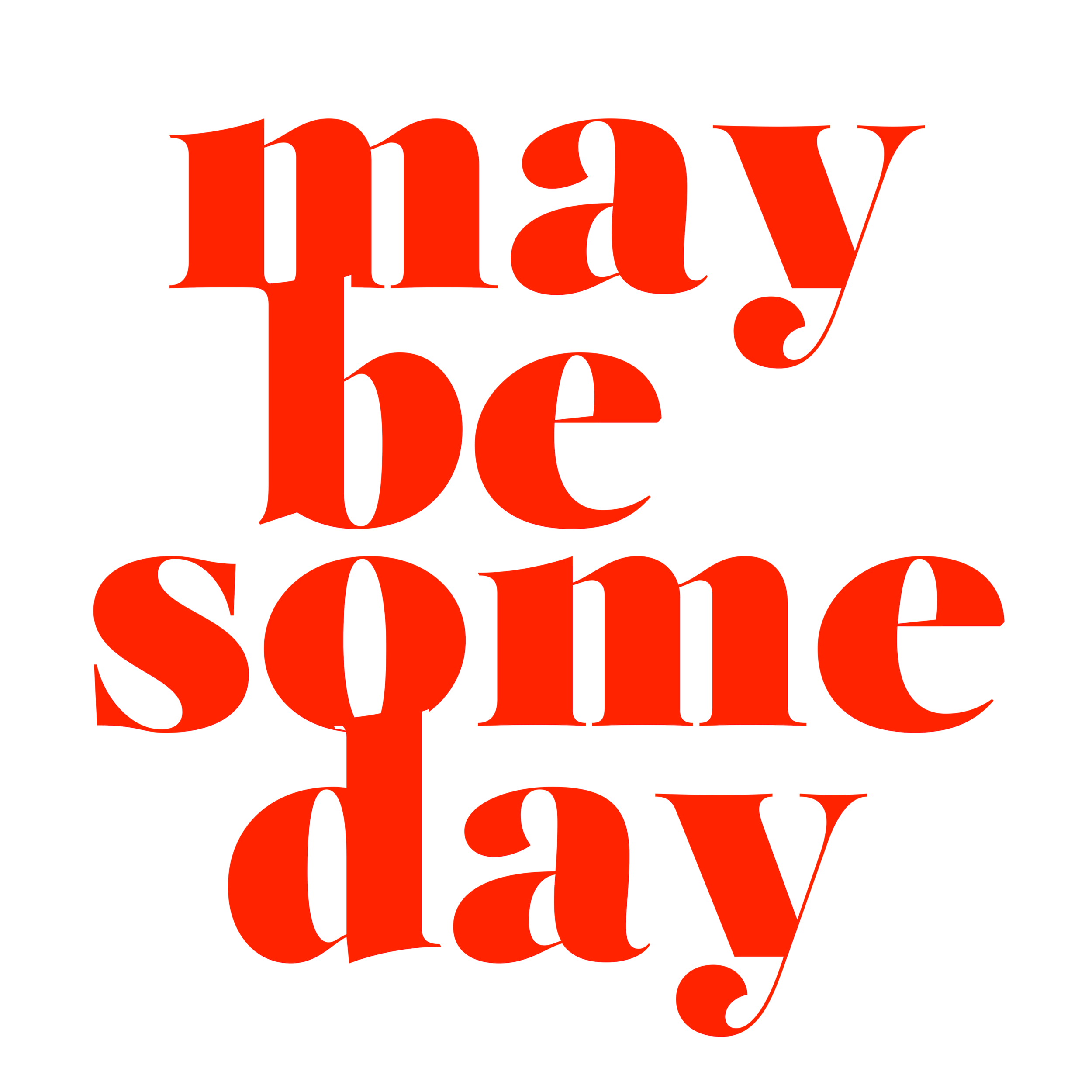Reflection: The Disappointment of Strangers
Have something to say but you don't want to say it in the comments? Get in touch:
Email: sarah@maybesomedaypodast.com
Instagram: @maybesomedayshow
Facebook: @maybesomedayshow
Subscribe: iTunes | Spotify | Stitcher | Google Play | TuneIn
In Episode 6, on being childfree by choice, I was struck by Maggie’s comment about managing other people’s disappointment—disappointing your family, your friends, even complete strangers. Whether it’s said to your face or it’s implied, your life and your choices are being judged.
Women who choose not to have children are often told that they’ll regret their decision. There are a bunch of implications in that statement. First, it implies that you haven’t really thought it through or maybe that you’re basing your decision on incomplete information. But it also implies that there is a single path to happiness and fulfillment—for women—and diverging from that path is a big mistake.
Until recently, diverging from the path that’s expected of me has felt more like a personal failure than an expression of independence. I’ve always felt like an outsider, but there was no pride in it. I’ve always wanted to belong. I saw my lack of belonging as a character flaw instead of a choice.
So not having children felt like yet another failure to belong. And that feeling was reinforced when I was told, implicitly and explicitly, that I make poor choices, that there’s something wrong with me, and that I’ll never be happy unless I see marriage and children as my highest achievement. Unless I see marriage and children as achievements, full stop.
It’s no wonder that the champions of being childfree by choice need to defend that life. As I said to Maggie, I find it off-putting to pit my decisions against someone else’s - but when your choice is seen as a rejection of the dominant culture I can see why you’d feel the need to defend it so fiercely. And that’s just defending our choices against judgment from others. In many cases we still have to defend our choices against control from others.
I’m discovering that what being childfree says about me is more painful than actually being childfree. I suspect a lot of women feel that way. It’s the assumption that our lives are devoid of meaning or less worthy than those who’ve followed the dominant path. It’s the assumption that we’re selfish, and frivolous, and cold.
I can reject that assumption on its surface, because it’s ridiculous and insulting. But because I’ve been socialized to please everyone all the time, it’s still painful. And it’s taking some work for me to question my own beliefs about what my life will be without kids of my own.
For example - because I won’t have kids of my own I feel a lot of pressure to make a big impact or to leave some kind of legacy. I have to do something amazing to make up for not having kids. I have to prove that I did something with my life. So even if I’m not pitting my choice against the mommies on social media, I still feel compelled to defend myself.
I also feel a lot of pressure to be thin and to keep my body in shape - which of course most women deal with every single day. But because I’m not putting my body through the enormous stresses of pregnancy and labour, I feel like my body isn’t allowed to change, and if it does, I’ve failed. A friend of mine echoed this sentiment by saying that there’s a perception that childfree women haven’t earned our aging like mothers have.
So I still have a lot of work to do to accept what it means to be childfree. I still carry plenty of uncomfortable questions about my identity and my purpose as a woman because I have chosen not to have kids.
Sometimes I feel like I’ve run out of things to say about the choice not to become a mother.
How many times can I repeat that there’s more than one path to a happy life, and that women are free to choose the path that they want? The answer is: until it’s true. And it doesn’t feel true yet.

